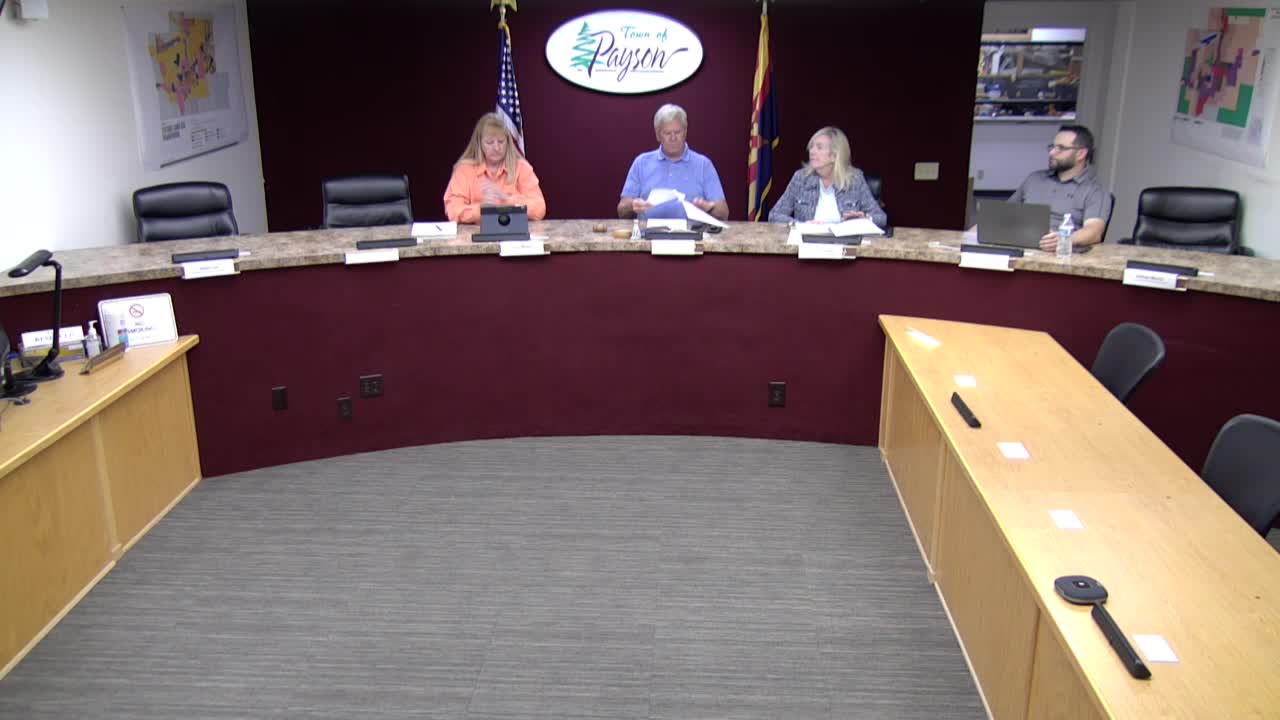Payson planning panel unanimously approves conditional use permit for 16‑bed residential recovery program
Get AI-powered insights, summaries, and transcripts
Subscribe
Summary
The Payson Planning and Zoning Commission voted unanimously to approve CUP 25‑001 to allow a voluntary, 30‑day residential substance‑use recovery program for up to 16 adult women at 300 West Wade Lane, subject to 12 staff conditions and required state and local permits.
The Town of Payson Planning and Zoning Commission voted unanimously to approve Conditional Use Permit (CUP) 25‑001 to allow a residential care facility for temporary care and rehabilitation at 300 West Wade Lane.
Planning staff told commissioners the proposal is to operate a voluntary 30‑day residential program serving adult females with substance‑use disorders in an existing residence. Staff recommended approval subject to 12 conditions listed in the staff report, including life‑safety improvements and required permits. "Staff recommends approval of the application subject to the 12 conditions listed in the staff report," said Sam, a planning staff member.
Why it matters: The permit authorizes a residential living use in an R‑3 zoning district where such facilities are conditionally allowed. The facility will be limited to a maximum of 16 residents, must staff 24 hours, and will not provide acute medical or psychiatric care. Those limits affect neighborhood safety, public services and oversight because the town enforces CUP conditions and code violations through its code enforcement and licensing processes.
Commissioners and staff outlined regulatory and operational constraints. The applicant, Dustin Bullard, identified himself as the agent for Adams Real Estate Holdings LLC and said the program model emphasizes structured, voluntary care with on‑site clinicians and 24‑hour staff. "I would say maybe if we're lucky by January 1," Bullard said when asked for an estimated opening date, adding that timelines depend on required inspections, fire‑sprinkler installation and other inspections.
Staff explained other requirements the applicant must satisfy before operation: Arizona‑licensed commercial contractors for any tenant‑improvement work, a business license and certificate of occupancy, compliance with the Town of Payson Unified Development Code (including Chapter 152 grading and drainage standards) and life‑safety measures such as automatic fire sprinklers. Because the site has a disconnected on‑site well, water service and sewer capacity must be provided through the town; the sanitary district requested documentation of the second building sewer connection and said a grease interceptor would be required if a commercial kitchen is installed.
Commissioners asked about community outreach and enforcement. Bullard said he had notified neighbors, had received at least one written letter of support and typically uses local contractors when possible. He said the organization keeps 24‑hour phone lines and would transport residents who leave voluntarily. Planning staff and commissioners noted that complaints or violations would be handled through the town’s code enforcement process and that revocation of the CUP is a possible enforcement outcome if the use violates the permit conditions.
Formal action: A motion to approve CUP 25‑001, subject to the conditions recommended by staff, was made and seconded; the commission voted unanimously in favor. The commission chair called the motion passed.
Next steps: The applicant must obtain the listed permits and approvals — including any tenant‑improvement permits, fire‑sprinkler inspections, business license and certificate of occupancy — before beginning operations. If the use or ownership changes in the future, a new CUP or other permitting process would be required.
